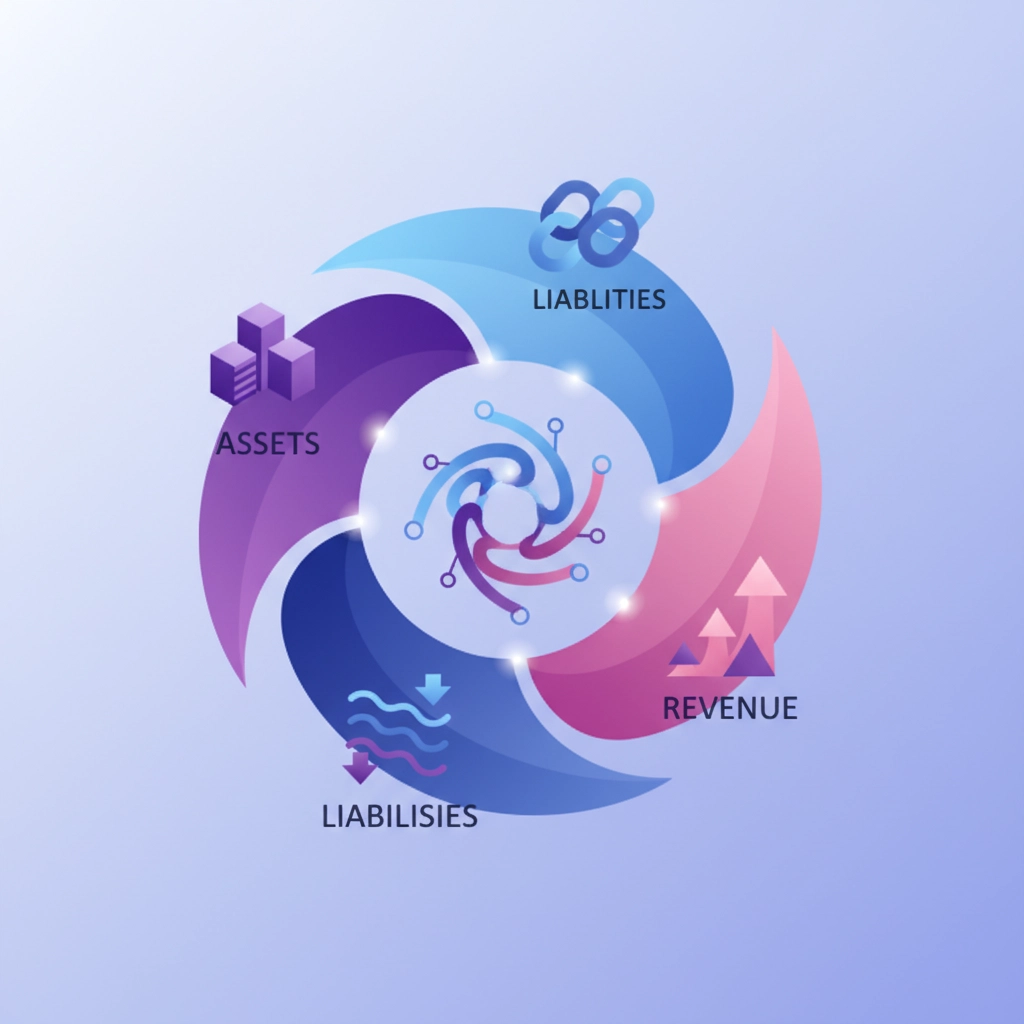Why GAAP Standards Matter (And What Martha Stewart and Chris Chrisley Can Teach Small Businesses About Trusting Your Accountant)
- Jayme Lin Rose

- Oct 21, 2025
- 5 min read
Updated: Nov 8, 2025
Picture this: You're a successful business owner, maybe even a household name. You've built an empire, you trust your financial team, and life is good. Then one day, federal agents show up at your door because your accountant made some "creative" decisions with your books that you knew nothing about.
That's exactly what happened to Martha Stewart and Chris Chrisley. Both trusted their financial advisors completely – and both ended up facing serious legal consequences when those trusted professionals made moves that crossed the line.
Here's the thing: as a small business owner, you might think these celebrity cases don't apply to you. But the lesson is crystal clear – when it comes to your money and your business, trust isn't enough. You need awareness, and that starts with understanding the basics of proper accounting standards.
What Exactly Are GAAP Standards?
GAAP stands for Generally Accepted Accounting Principles, and think of them as the rulebook for how businesses should track and report their finances. These aren't just suggestions – they're the standardized guidelines that ensure your financial records are consistent, transparent, and reliable.

The core principles include:
Consistency: Using the same accounting methods from year to year
Relevance: Making sure your financial info actually helps with decision-making
Reliability: Keeping your data accurate and verifiable
Comparability: Being able to stack your performance against other businesses
For small businesses, GAAP provides that solid foundation we all need. It prevents companies from inflating profits or hiding liabilities, creating a level playing field where everyone follows the same rules.
The Martha Stewart Wake-Up Call
Martha Stewart's case wasn't technically about GAAP violations, but it perfectly illustrates what happens when you're not personally aware of what's happening with your finances. In 2004, she was convicted for insider trading related to ImClone stock trades.
The key lesson? Stewart relied heavily on her broker and financial advisors to make investment decisions. When those decisions crossed into illegal territory, she faced the consequences – even though she claimed she didn't understand the full implications of what was happening.
Stewart served five months in federal prison and five months of home confinement. Her company's stock plummeted, and her reputation took years to recover. All because she wasn't personally involved enough in understanding the financial moves being made on her behalf.
The Chrisley Family's $30 Million Mistake
Chris Chrisley's case hits even closer to home for small business owners. The reality TV star was sentenced to 12 years in federal prison in 2022 for tax evasion and bank fraud. His wife Julie got seven years.
Here's what happened: The Chrisleys' accountant helped them submit false documents to banks to get loans, hide income to avoid taxes, and even filed false tax returns. When the feds caught up with them, Chris and Julie claimed they had no idea what their accountant was doing – they just signed whatever he put in front of them.
The judge wasn't buying it. The message was clear: as a business owner, you can't just hand over your financial responsibilities and hope for the best.
Standard Account Coding: Your Financial GPS
Let's get practical. One of the basic GAAP concepts you need to understand is standard account coding. Think of this as your financial GPS system – it tells you exactly where every dollar is going and coming from.
Basic account categories include:
Assets (1000-1999): What you own (cash, inventory, equipment)
Liabilities (2000-2999): What you owe (loans, accounts payable)
Equity (3000-3999): Your ownership stake in the business
Revenue (4000-4999): Money coming in from sales
Expenses (5000-9999): Money going out to run the business
When your accountant sets up these codes properly, you can quickly see patterns, catch problems early, and make informed decisions about your business.

Honest Tax Breaks vs. Risky Maneuvers
Here's where things get tricky. Every small business owner wants to minimize their tax burden – that's just smart business. But there's a big difference between legitimate tax strategies and the kind of "creative accounting" that landed the Chrisleys in prison.
Honest tax breaks you should know about:
Deducting legitimate business expenses (office supplies, equipment, business meals)
Taking depreciation on business assets
Contributing to retirement plans
Claiming the home office deduction if you qualify
Red flags that should make you nervous:
Your accountant suggests hiding income or inflating expenses
They recommend complex offshore structures for a simple local business
They tell you "don't worry about the details" when you ask questions
They promise unrealistically large refunds or savings
The difference is transparency. Legitimate tax strategies can be explained clearly and documented properly. Sketchy moves usually come with a lot of secrecy and vague explanations.
Warning Signs You Need a Better Money Management Team
After seeing what happened to Martha Stewart and the Chrisleys, how do you know if your current financial team is putting you at risk?
Watch out for these red flags:
They discourage you from asking questions or reviewing documents
Your books always seem to be "in progress" when you want to see them
They handle everything without giving you regular updates
Tax returns or financial statements have unexplained changes from year to year
They suggest strategies that seem too good to be true
On the flip side, a good accounting team will:
Explain decisions in plain English
Provide regular financial updates and reports
Welcome your questions and involvement
Follow GAAP standards consistently
Be transparent about their methods and reasoning
Building Your Financial Safety Net
The goal isn't to become a certified accountant yourself – it's to be informed enough to spot problems before they become federal cases. Here's how to protect yourself:
Stay involved in your finances. Review your monthly financial statements, even if you don't understand every detail. Ask questions about anything that looks unusual or confusing.
Understand the basics of GAAP. You don't need to memorize every rule, but knowing the core principles helps you evaluate whether your accountant is following best practices.
Get a second opinion on major decisions. Before making any significant financial moves, especially complex tax strategies, get input from another qualified professional.
Keep your own records. Don't rely entirely on your accountant's books. Keep your own simple records of major transactions, contracts, and financial commitments.

Schedule regular check-ins. Don't wait until tax season to talk to your accountant. Monthly or quarterly reviews help you stay on top of your financial situation and catch problems early.
The Trust-But-Verify Approach
The lesson from Martha Stewart and Chris Chrisley isn't that you can't trust your financial professionals – it's that trust without awareness is dangerous. You need both.
A good accountant should welcome your involvement and questions. They should be able to explain their decisions clearly and show you how they're following GAAP standards. If they can't or won't do that, it's time to find someone new.
Remember, at the end of the day, it's your business and your responsibility. The IRS and other regulatory agencies don't care if you "didn't know" what your accountant was doing. As the business owner, you're ultimately accountable for your financial decisions.
Don't let yourself become another cautionary tale. Stay informed, ask questions, and make sure your financial team is working with you, not just for you. Your future self – and your freedom – will thank you for it.
Need help reviewing your current financial setup or finding accountants who prioritize transparency and GAAP compliance? Let's chat about how we can help you build a stronger financial foundation for your business.
Jeffrey A Skiendziul, Esq. is an enrolled agent with the IRS. Jayme Luzzi, CEP, MAS, MS is a certified tax professional who spent a decade in finance as a registered representative. We can both assist you in making sure your books are in order both professionally and personally.
Comments